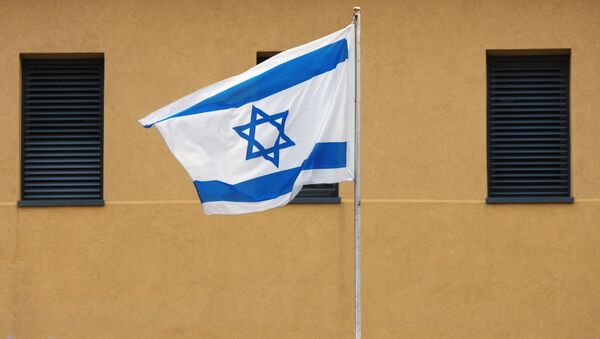Sputnik: Israeli Foreign Minister Israel Katz has insisted that his country’s rapprochement with the Arab states comes as his "top priority". What's your take on the timing of this statement?
Dr Hassan Nafaa: This has been a long term objective for Israel. Israel has been working all the time to normalise its relationships with the Arab states, especially with the Gulf States, but was not ready to pay what it has to pay - I mean to achieve an agreement with the Palestinian people. When the Saudi initiative was put to the Arab Summit held in Beirut in 2002, the idea was to prove that the Arab states are ready for peace with Israel, if Israel is ready to withdraw from all the Arab-occupied territories and to help establish an independent Palestinian state. But Israel has never been ready and there’s not really an independent Palestinian state. It worked very hard to convince the Arab Gulf States to perceive Iran as the real enemy and to convince them that Israel is ready to work with them to face this threat. And I think Israel is about to succeed now, because the Arab Gulf states have been trying to elaborate and increase the kind of relationship with Israel for the last three or four years.
Sputnik: Tel Aviv’s special relationship with the current US administration is another factor that brings Israel closer to its Arab neighbours, Israel's foreign minister said. How will this impact the approval of Washington’s Middle East peace plan?
Dr Hassan Nafaa: Israel sometimes exaggerates a lot on the level of the normalisation that has been achieved. But it is sure now that secret negotiations have been going with countries like Saudi Arabia, like Bahrain, like the UAE, and many others. But have these negotiations led to an agreement about how to face Iran, what will be done with the Palestinian problem, with the so-called ”deal of the century” and so on – it’s still unclear, as a matter of fact. But the declaration of the Israeli officials lately proves that this relationship is improving and, in my opinion, all will depend on how the Gulf crisis with Iran will be resolved. If there is a military strike and the Trump administration gives the green light for such a strike - I think some Arab states, especially Saudi Arabia and the UAE, will go for most possible cooperation with Israel. But if not, and if this will not be possible and Trump becomes more engaged in the coming election - I think this will cool off and nothing really will be done in this regard.
Sputnik: Some experts have suggested that the September parliamentary elections in Israel could prove to be the most critical since the beginning of the century. How will the proposed rapprochement with the Gulf States influence Israeli politics in the wake of the elections?
Dr Hassan Nafaa: I don’t personally believe that the coming Israeli election in September will change a lot of things. Israel has been heading towards a far-right government, and this will not change at the moment unless the coming election will bring about a real surprise, which I don’t believe and I don’t think so. So business will continue to go as usual. The most decisive element in the elaborations or in the improving of the Israeli–Arab Gulf relationship will be the Iranian question, whether there will be a strike or not. Because Israel has been the locomotive for a regime change in Iran, and it has been behind all [of] what happened later on with the US and Iran. So the Gulf crisis and the Iran issue will be a decisive element in this regard.
Sputnik: How will the Gulf States react to Israeli goals of rapprochement, in your view?
Dr Hassan Nafaa: The Gulf States are not the same. I mean, Saudi Arabia and the UAE are on one side, I mean, they work together most of the time in this regard, there’s a kind of coordination, cooperation - but Oman is different, Kuwait is different. And Bahrain, of course, is a dependent state - it doesn’t have any independent foreign policy and it’s very closely linked to the Saudi one. So we have to see, and you understand that there is polarisation between Qatar and some Arab Gulf States - so it’s profoundly divided and the US is trying to profit from this division - more money from all the Arab states, including Qatar and Saudi Arabia. So I don’t know whether a military strike against Iran will bring the Arab Gulf states together to face Iran or not; it seems to me that the division between them is deeper, and it will not be possible even if there is a military strike that they will come together and have a unified policy [either] towards Israel or Iran.
The views expressed in this article are those of the speaker and do not necessarily reflect those of Sputnik.

